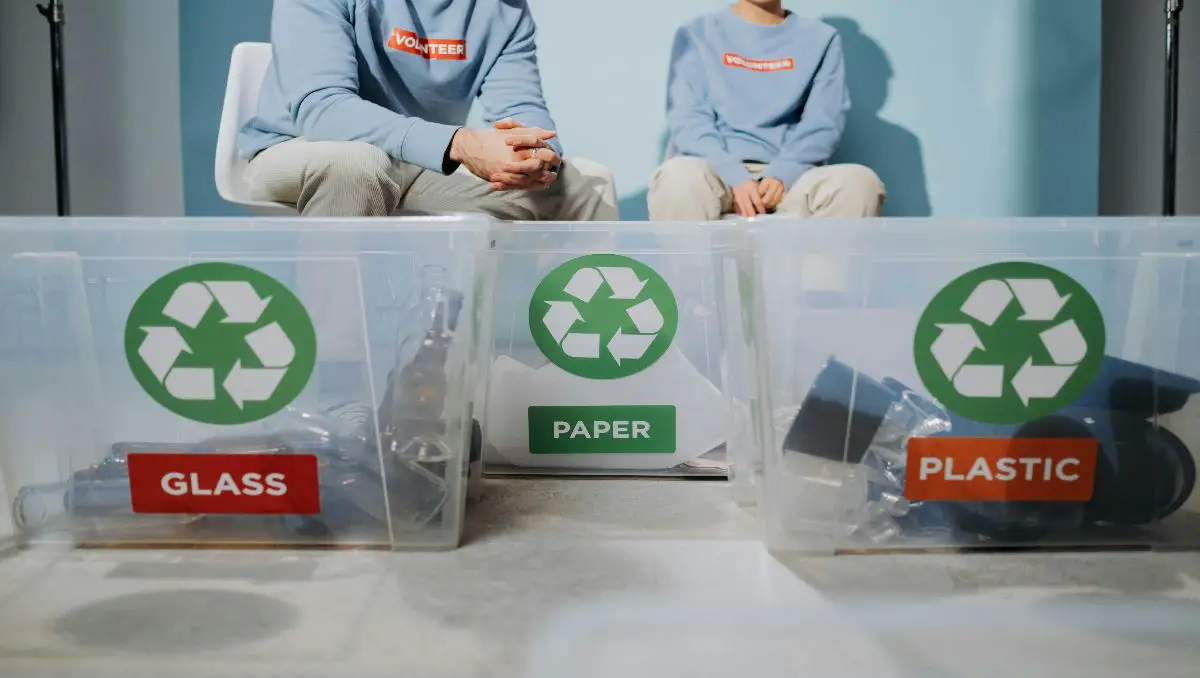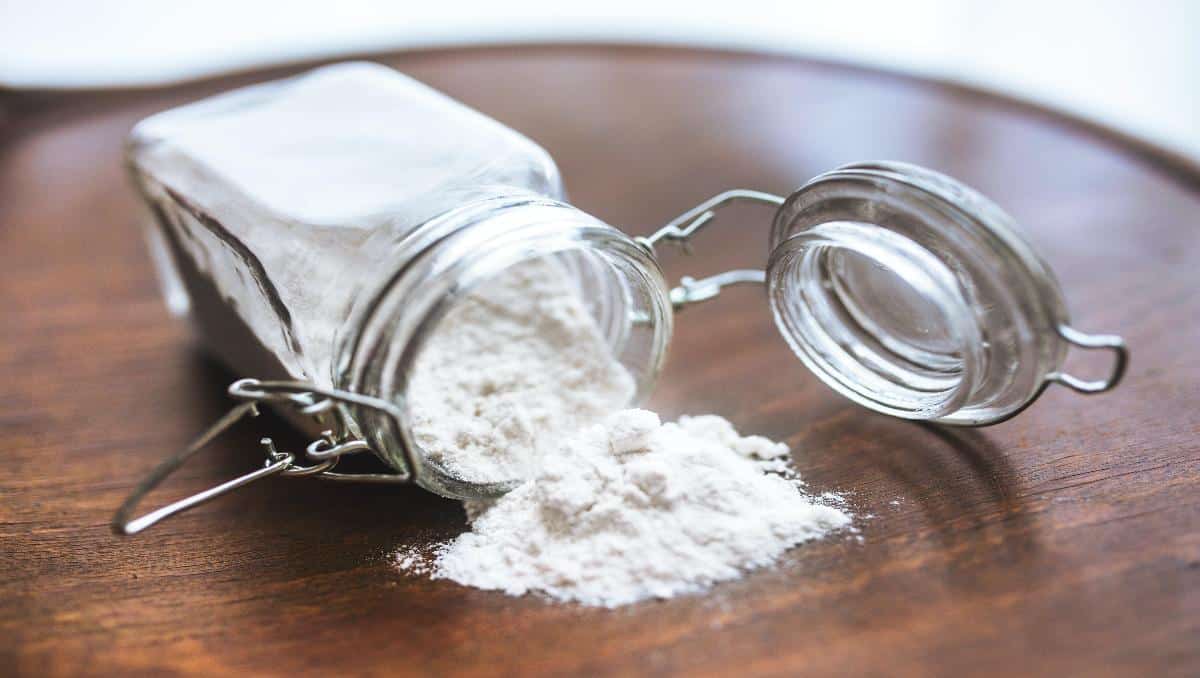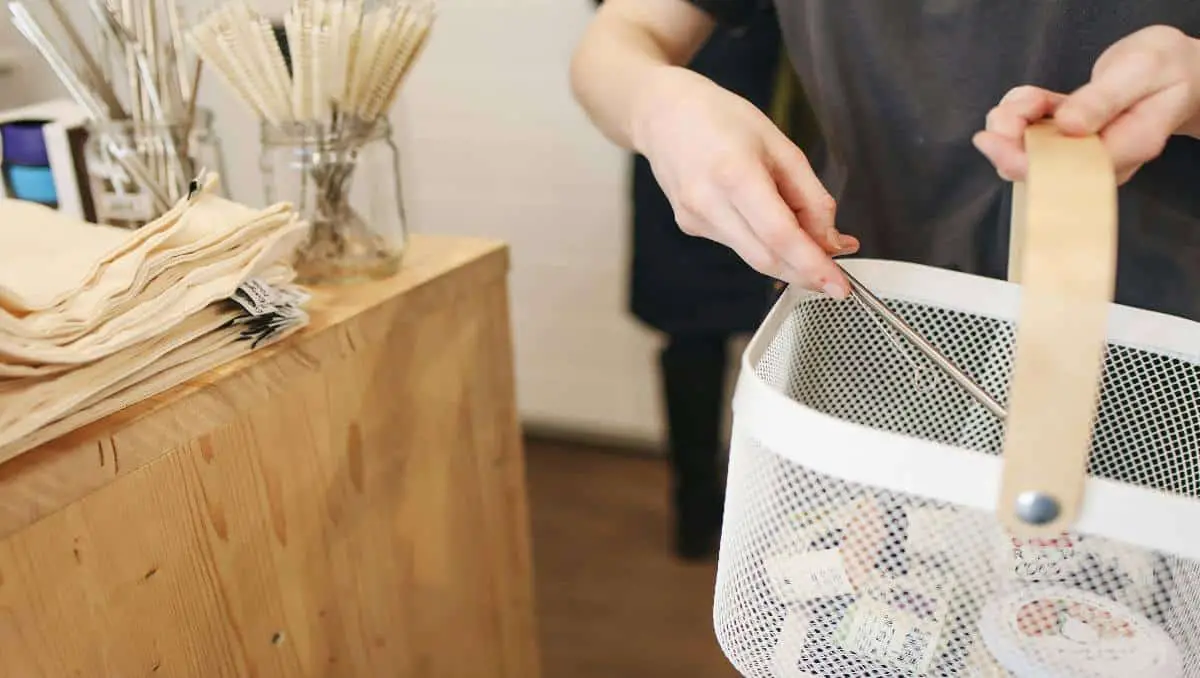Dear EarthTalk: My neighbor told me to pour bleach down my drains every week to keep them clear. Is this safe to do?
Bleach is a useful cleaner and disinfectant (although there are safer eco-friendly alternatives to bleach you should use instead), but pouring it down the drain will not do anything to help keep the drains clear. In addition, you could cause a dangerous chemical reaction if it comes into contact with other household products you might be using.
Common household bleach, also known as chlorine bleach, is a liquid compound of sodium hypochlorite, which is a combination of sodium chloride (a salt) with water and chlorine. It’s often used to whiten laundry or to disinfect kitchen surfaces. Bleach is also an ingredient in other household cleaners, like those used for bath and toilet cleaning. (A different sort of bleach, known as oxygen bleach, is used for laundry stain removal and does not have the same disinfecting/cleaning properties as chlorine bleach.)
According to the Household Products Database at the U.S. Department of Health and Human Services (DHHS), chlorine bleach is corrosive to the eyes; injures skin and mucous membranes on contact; and is harmful if swallowed. Bleach is a lung and eye irritant, warns the Washington Toxics Coalition (WTC), a Seattle non-profit that advocates for green friendly household products. Even used alone, fumes from chlorine bleach can irritate the lungs, so it should not be used by people with asthma or lung or heart problems, says the group. The lingering bleach smell can also be a concern for those sensitive to strong odors. Additionally, there is a recognized cancer-risk from bleach. It is also reactive with ammonia and acids, forming more harmful fumes.
“One of the most common home accidents is the mixing of products containing chlorine bleach with those containing ammonia,” says WTC. The combination creates chloramine gas, which is highly irritating to the lungs. Since many cleaning products contain ammonia, the inadvertent mixing must be avoided. Mixing bleach and acids results in the release of chlorine gas, according to the New Jersey Department of Health and Senior Services, exposure to which can cause coughing and breathing problems, burning eyes and, at high levels, vomiting, pneumonia and even death. Products containing acids include vinegar, some glass and window cleaners, toilet bowl cleaners, drain cleaners and rust removers. An “incompatibility chart” listing many chemicals that will react with bleach is available at the Chlorine Institute’s cl2.com website.
Bleach alone is not necessarily hard on the environment. When use as directed, it will break down mostly into salt water in wastewater treatment or septic systems, says WTC. A dilution of bleach in water is effective as a disinfectant, and can be scrubbed onto non-porous food-contact surfaces like plastic cutting boards or refrigerator shelves and left to air dry.
So, what are the better ways to keep drains clear? Home drains in the kitchen and bath generally get clogged by grease, food waste and hair, none of which will be effectively dispersed by bleach. WTC recommends carefully pouring a kettleful of boiling water down the drain to free up a slow drain, or using mechanical methods such as a plumber’s snake, plunger or hose-end bladder to clean a clogged drain.
CONTACTS: DHHS Household Products Database, http://hpd.nlm.nih.gov ; Washington Toxics Coalition, www.washingtontoxics.org; New Jersey Department of Health and Senior Services, www.state.nj.us/health; Chlorine Institute, www.cl2.com.
SEND YOUR ENVIRONMENTAL QUESTIONS TO: EarthTalk, c/o E The Environmental Magazine, P.O. Box 5098, Westport, CT 06881; earthtalk@emagazine.com. E is a nonprofit publication. Subscribe: www.emagazine.com/subscribe; Request a Free Trial Issue: www.emagazine.com/trial.







Thanks for this article and links! In Austria we knew bleach only as means for lightening hair used by ‘fancy ladies.’ Never ever did one use it for clothes or house cleaning. We did use it as disinfectant in the (cell culture) lab and it was certainly used in hospitals for the same reason. I’ve been here in the US for 17 years and still haven’t used bleach for laundry or any other suggested household uses such as the drain cleaning procedure mentioned in this article. Funny enough, I noticed that clothes used to get cleaner in the old country than here, maybe the machines and the water were better there…
Oxygen bleach like hydrogen peroxide? I use seventh gen bleach which is basically hydrogen peroxide, and an oxygen stabilizer, according to the ingredients label. Does it disinfect? I figure hydrogen peroxide is used on cuts and wounds, so it must do some kind of disinfecting? I use it as if it does, but now I wonder, if anyone knows.
I pour bleach down the drain if a smell comes out of there. It fixes the problem. But my landlord doesnt want me using ANY chemicals for anything. She says bleach will destroy her pipes and desteoy her bathroom sink. I had to wash a white shirt in my bathroom and she bugged out. The sink is regular ceramic
Is it ok to pour bleach down kitchen sink to get rid of gnats?
I do, in the bathroom. But tonight could only find concentrated bleach so I used that and it ate away the drain, now it’s got brown spots all over it where it used to be silver 🙁 I’ll be going back to regular bleach after this. But a plumber told me about it when I had a drain fly infestation. Has worked ever since.
My American Standard bath tub had spot of rust; tub repairman said not to use any product with bleach, or any powder cleanser of any kind as that will cause rust. (Must be made of iron or other metal.) He did suggest using only liquid or foamy cleansers on tubs, sinks but nothing with any form of bleach.
A plumber told me (separate occasion) to pour about 1/2c straight bleach down pipe as monthly dissolver of hair, set 15min, then follow with kettle of boiling water down drain. (Be sure you rinse off any metal at base of sink immediately following the bleach—just don’t flood sink immediately after pouring bleach down drain. Caveat is…Bleach will corrode the metal if not rinsed off). Bleach does dissolve hair though; however, if you REGULARLY (ie twice month—without fail!) pour full kettle boiling water down drain it’ll really help keep it clear. Could pour 1/2c soda first, set 15min or 1/2 c salt followed by boiling water, that helps keep clear too.
Never use bleach to clean your drains on a regular basis. Bleach kills off the beneficial bacteria inside of pipes. Bacteria is what breaks down the organic materials inside your drain pipes and keeps them working properly. Use bacteria promoting products on your drains (enzymes) to keep them working properly. Bleaching your drains can cause worsening odor problems in the long term.
What about all the household cleaners we use daily? What about the the Mr. Clean and .Scrub free cleaners i use?